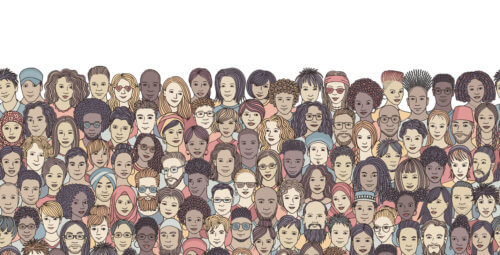Last Updated on October 14, 2020, 12:18 pm ET

George Floyd’s senseless death is just one of the latest instances of violence against Black people in the United States but it has struck a nerve and generated a global display of unity that spotlights the importance of protecting Black lives. This moment has reemphasized the continued need for us to interrogate our work at research libraries, as we strive towards an anti-racist society that centers diversity, equity, and inclusion. At my own institution, The University of Texas (UT) Libraries, we have undertaken a number of initiatives to bring this goal to fruition. Such traumatic events amidst the COVID-19 pandemic offered the UT Libraries unique and rich opportunities to redouble its commitment to inclusiveness, diversity, equity, and accessibility.
As a research library, we advocate for open access to government data, documents, and proceedings to study police brutality, systemic disenfranchisement, and other oppressive tactics for effective public oversight. We are working to also increase the reach of such research through our open access repository, Texas ScholarWorks, and the Texas Data Repository.
As custodians of the cultural record, it is our responsibility to develop and curate collections and other resources that represent the voices and expressions of Black, Indigenous, people of color (BIPOC) and other underrepresented communities. In 2015, we formally launched the Black Diaspora Archive, consisting of materials that had been actively collected for almost a century along with Latin American materials. Now with a renewed focus on materials produced by Black people that include historical works, rare material, and works by contemporary scholars, professionals, and activist movements, we are able to provide a deeper understanding of the Black experience.
Collecting and curating these materials has required that we focus on recruiting and developing individuals who identify as people of color, or are from historically underrepresented racial and ethnic groups. We have a strong record of supporting our staff from underrepresented communities. This includes participation in the Association of Research Libraries (ARL) diversity programs, including the Kaleidoscope Program, the Leadership and Career Development Program, the Fellowship for Digital and Inclusive Excellence, and the ARL/SAA Mosaic Program.
As historically inclusive, democratic institutions, libraries can be a bridge towards progress and racial justice. At UT Libraries (UTL) we are committed to better understanding this university’s and the country’s racist history and the impact of white privilege and white supremacy through our Diversity Action Committee’s programs and initiatives. UTL’s Diversity Residency Program ensures that we continue to increase the representation of historically underrepresented, underserved, or marginalized groups in the profession. In doing so, our residents enhance diversity in our workplace while working in areas of interest to them, such as open educational resources, digital humanities, user experience, and stewardship. These experiences are critical to center residents in the profession in a safe and well-supported learning environment.
Furthermore, as core partners in the teaching mission at The University of Texas at Austin, we must instill critical thinking skills and empathy to equip UT students in the fight against social injustices and racism. Our staff achieves this, in part, by embedding resources in course material and creating LibGuides and exhibits highlighting the rich depth of our collections based on the scholarship of theorists, educators, and scholars who have been studying and publishing about these phenomena for decades.
At The University of Texas we firmly believe, “What starts here changes the world.” In alignment with this belief, UT Libraries is working to be the change we want to see. UT Libraries is one example among many research libraries doing the work towards dismantling systemic oppression in our field and uplifting inclusiveness, diversity, equity, and accessibility (IDEA). Through a collaborative process, research libraries will continue advancing IDEA, centering the work of marginalized communities, and advocating for anti-racism in our programs and policies.
Lorraine Haricombe is vice provost and director of libraries at the University of Texas at Austin and is ARL president for 2019-2020.



